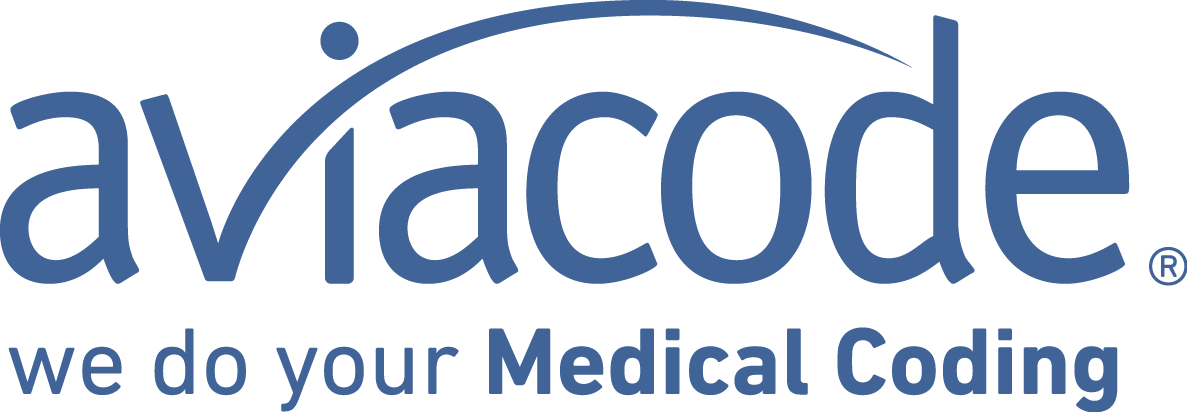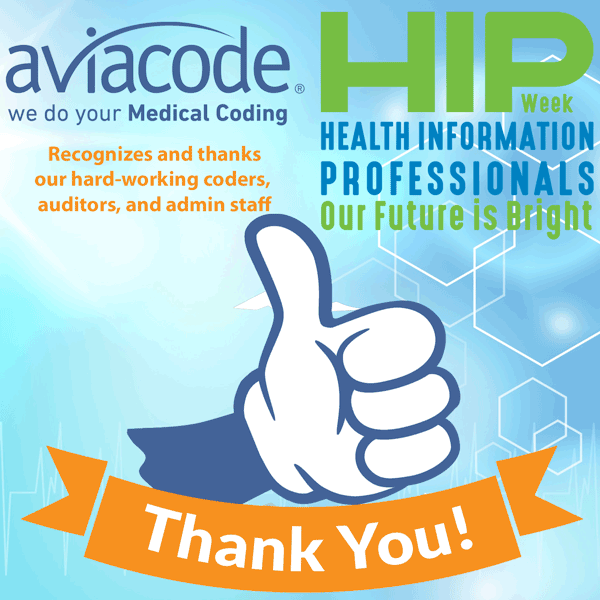Aviacode joins American Health Information Association (AHIMA) in celebrating health information professionals during the 29th annual Health Information Professionals (HIP) this week (March 18–24, 2018).
Aviacode Joins AHIMA in Celebrating Health Information Professionals Week 2018
Topics: Medical Coding, Medical Coders, Health Information Management, Medical Coding Audits
With October 1st in our rearview mirror, we thought it would be a good time to stop, take a deep breathe, and look at your physicians clinical documentation. How does it look? Take a look at our infographic and decide which Dr. you relate with more:
Topics: Medical Coding, Medical Coders
Important Things For Medical Coders To Know Post ICD-10
For those familiar with the healthcare industry, right now you may be holding your breath as the much anticipated switch from ICD-9 to ICD-10 is only days away. Whether you work with physicians, in a third party billing company, insurance agency or see a future in the healthcare industry, this switch will inevitably effect the way your job is performed. This switch will even change the way one must prepare for a job in medical coding and the industry itself, from education and training, to benefits, work flexibility and market potential. Read on to find out why this is an exciting time to join the medical coding industry and how to land a job post ICD-10 implementation.
Industry Changes & What This Means For You
The switch to ICD-10 means that, unless granted a crossover or extension, all states will be required to process all medical billing and documentation in the new code which increased the volume of codes by 520% or from 13,000 used in ICD-9 to 68,000 total for ICD-10. The bright side is, for those considering a career in medical coding, the switch has many healthcare providers and medical billing companies searching for well-trained and certified coders proficient in ICD-10. The US Bureau of Labor Statistics estimates a shortage of more than 50,000 qualified Health Information Management and Health Information Technology Workers by 2015. Meaning that while some degrees and programs leave you to fend for yourself in competitive, oversaturated job markets, while gaining certification in ICD-10 will leave you with many potential prospects in a secure and growing market.
ICD-10 Training, Certification & Resources
Topics: ICD-10, Medical Coding, Medical Coders
The Top 5 Things That Go Wrong When Physicians Don't Document Properly
Medical professionals undergo extensive training and preparation before they ever receive a license to practice medicine, however even these highly trained professionals make mistakes that can lead to costly and irreversible consequences. Failure to provide proper documentation is one of the problem areas among leading healthcare providers because of the continued changes within this industry related to medical coding and proper documenation of medical records. The following list sheds light on some of the issues that arise as a result of improper documentation.
- Denials
Denied claims are a healthcare provider’s worst nightmare and can lead to costly issues due to wasted time and resources. There are several main reasons why an insurance provider will deny a medical claim, one of them being improper documentation, with non-capture of tests and procedures. This is an often a result when a physician or medical coder fails to input a code correctly or omits something entirely. Although, a claim is still recoverable even after it has been denied, the time and money spent rebilling and appealing the claim will not.
Topics: Medical Coding, Medical Coders
The Top 5 Reasons You Should Consider a Career in Medical Coding
Are you articulate, computer savvy and interested in joining one of the leading industries in the nation? If so, medical coding may be a smart career choice for you. Although, it is not ideal for everyone, the benefits, job security and high demand, are all great reasons why medical coding may be the ultimate dream job for some. Read on for more details about why one should choose a career in medical coding.
- Demand For Medical Coders

There is a growing need for medical coders and now is a good time to join this industry if you’re looking for a strong job market. With the impending switch from ICD-9 to ICD-10, we will soon see the demand for skilled medical coders with ICD-10 certification and training increase. The switch will take effect October 1st, 2015 and at that point, unless the state has been issued and extension, it will be required that all medical coding be done in ICD-10. This change will leave many healthcare and insurance providers unequipped to continue providing service at same capacity. In preparation for this switch many medical coding companies and healthcare service providers are seeking out coders with ICD-10 certification.
Topics: Medical Coding, Medical Coders
Stephanie Cecchini, CPC, CEMC, CHISP, ICD 10 Trainer, VP Coding at Aviacode
If you believe CMS…we get coding SERIOUSLY wrong. How wrong? In Evaluation and Management alone, $1,260,699,470 in improperly paid 2013 claims. Adding to the HEAT (pun intended), in recent years, the government and private payers have taken a firm position on fraud and abuse. The Patient Protection and Affordable Care Act allows the Centers for Medicare & Medicaid Services to suspend payments when there are “credible allegations of fraud.” It’s increasingly important to avoid even the appearance of wrongdoing.
Why does CMS believe their audits are right and physicians are wrong? Evaluation and Management codes, the codes that bill for office visits, are subjective in nature. From the aspect of medical necessity, the correct level of service is determined simply by how sick a patient is. Conditions that pose an immediate threat to life or limb qualify for the highest code level, whereas patients with minor or well controlled problems are at the lowest; however, peers may see the same patient and assuming the same diagnosis may still argue how sick the patient really is. Beyond medical necessity aspects, the rules that govern documentation requirements are also in many ways subjective. Reproducible audit results between unrelated documentation requirement auditors are not unfailingly prevailing. Properly trained and certified auditors may agree on the actual code selection better than 90 percent of the time; however, the means and measurements of their conclusion can be different upwards of 50 percent.
Topics: Medical Coders






